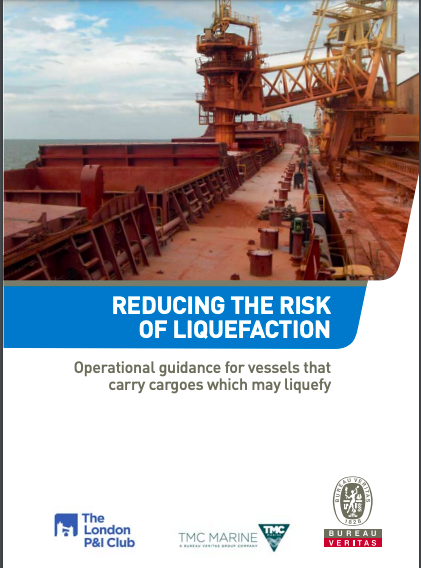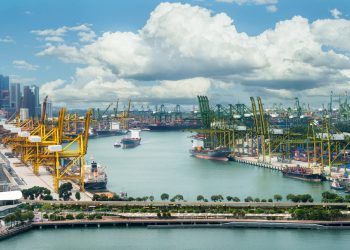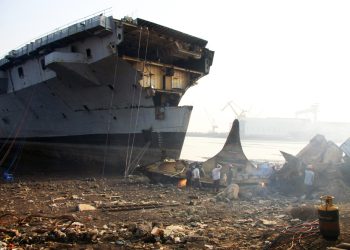The London P&I Club issued a booklet to provide guidance and practical advice on the loading and the carriage of bulk cargoes which may liquefy, the risks associated with liquefaction and the precautions to minimize these risks.
Key facts Liquefaction may occur without additional water content (e.g., from rainwater) if the inherent MC is already too high, yet undetected by improper checks/tests, in which case agitation alone will cause liquefaction as described. See also: Bulk Jupiter sinking: A stark reminder of bauxite cargo risks Before the loading It is important that the master should not accept concentrates or other cargoes which may liquefy for loading without being provided with the appropriate documentation certifying that the moisture content of the cargo is less than the TML. Prior to the commencement of loading the master should satisfy himself and confirm that: The following should also be carried out by the shipper and the master: It is a master’s responsibility to ensure that his/her vessel is safely loaded. If a shipper’s declaration has not been provided and has not been forthcoming, then the master should not start loading and immediately notify the vessel’s owners. During the loading Loading should only commence when the shipper has fulfilled the requirements outlined above and the master is satisfied with the information he has been provided with. The master should also complete the ship shore safety checklist as recommended by the Code of Practice for the Safe Loading and Unloading of Bulk Carriers (BLU Code4). The master and owners may consider the appointment of an experienced, independent cargo surveyor in order to check the shore-side stockpile and if necessary take samples. In most ports the master may not be allowed to go ashore to inspect the stock pile. During loading the master should: If during loading the master has reason to suspect that the MC is in excess of the TML, he/she should stop loading the cargo and inform the owners. The master may issue a ‘Letter of Protest’ and seek further advice from the P&I Club. During the voyage Monitor the cargo holds regularly to check for any sign of accumulation of free water in the cargo. Although these inspections may not provide a true representation of the cargo condition, they may provide an indication of how the cargo has behaved since it was loaded. However, this should only be carried out if it is safe to enter the holds, as mineral cargoes tend to deplete oxygen levels. If it is not already part of the ship’s routine, sound the cargo hold bilges on a daily basis. Although free water is expected to drain it can hold the moisture towards the bottom of the hold and develop a wet base. If necessary, consider ventilation of cargo as and when appropriate. This will depend on the advice contained in the IMSBC Code for that particular cargo loaded. Monitor the vessel’s motion, in particular the rolling period. A change in the rolling period may provide a warning of a reduction in the vessel’s GM. If the master or owner has any reason to suspect that the cargo is/has liquefied, they should immediately: Explore more herebelow:
































































